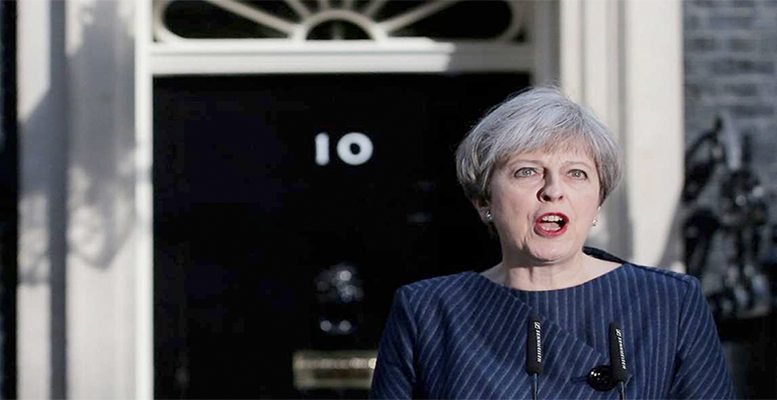Nick Ottens via Atlantic Sentinel | British prime minister Theresa May has adopted a policy her Conservative predecessor, David Cameron, once described as “nuts”.
When the opposition Labour Party proposed to freeze electricity rates in 2013, Cameron, then the Conservative Party leader, ridiculed it.
Now May has taken it over.
She pledged on Tuesday to cap electricity costs for households if she is reelected in June, writing in The Sun tabloid newspaper: “Like millions of working families, I am fed up with rip-off energy prices.
Electioneering
This is electioneering. British consumers aren’t being ripped off. Far from it.
Electricity bills may have doubled over the past decade, but prices in Britain remain below the EU average. The Germans and Irish pay more.
Gas is also cheaper in the United Kingdom than in most other European countries.
Energy was privatized under Margaret Thatcher in 1990. There are now six big providers, but their market share has fallen from 99 percent five years ago to 85 percent. Millions of consumers switch every year. If there is a market failure, it is hiding well.
Too much regulation
The problem is rather too much regulation. The Adam Smith Institute’s Sam Dumitriu points out that misguided attempts by regulators to “simplify” energy prices have created a gap between standard and discount rates that can reach up to £200.
The obvious solution is to rein in the regulator and allow energy companies to offer whatever rates they want. That was the situation until a few years ago and consumers paid less.
It is also what the Competitions and Markets Authority has recommended.
But May’s solution is try to fix one problem caused by market intervention with another market intervention; a typical statist fallacy.
It used to be only Labour made this mistake. Now both of Britain’s two major political parties have lost faith in the market.





